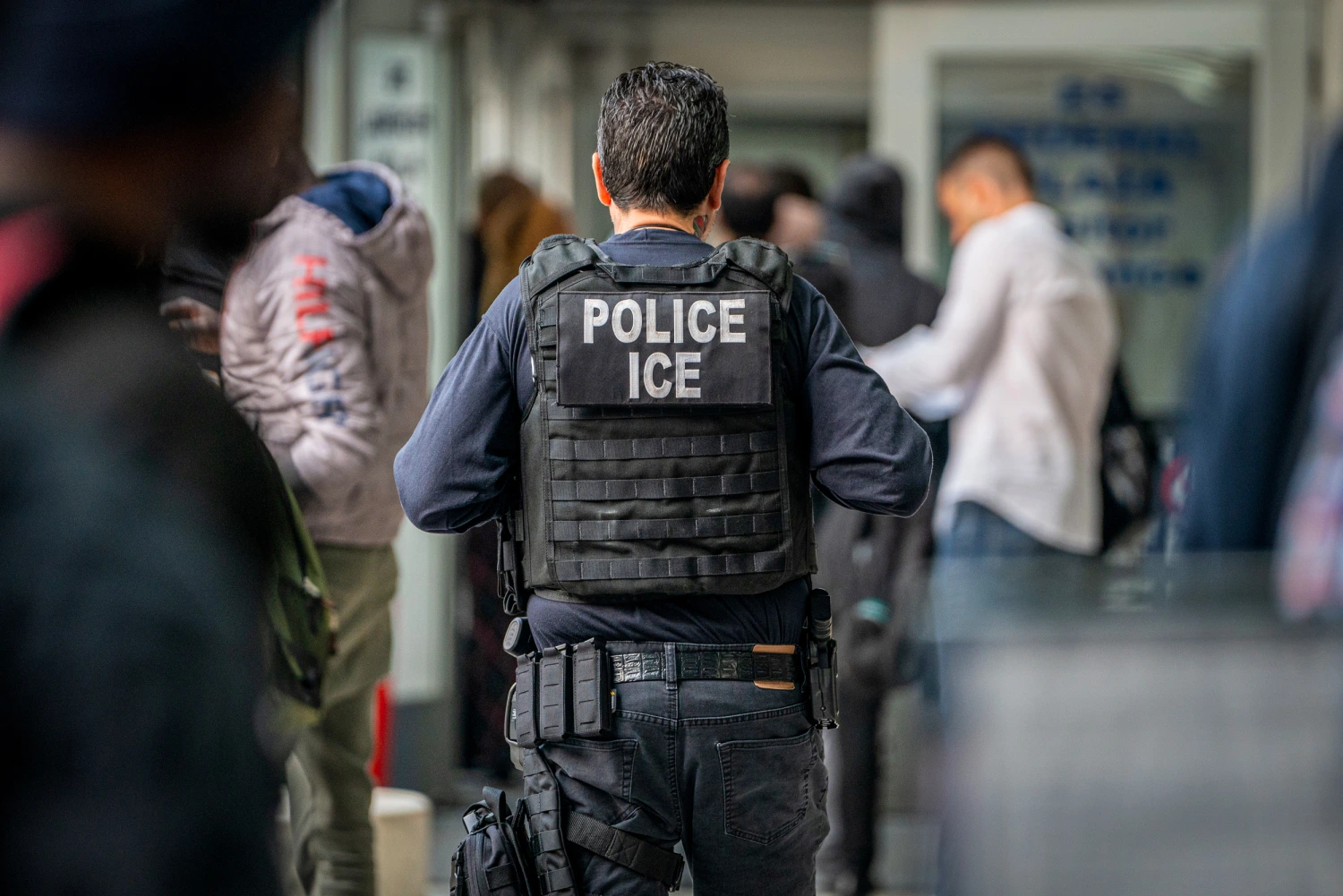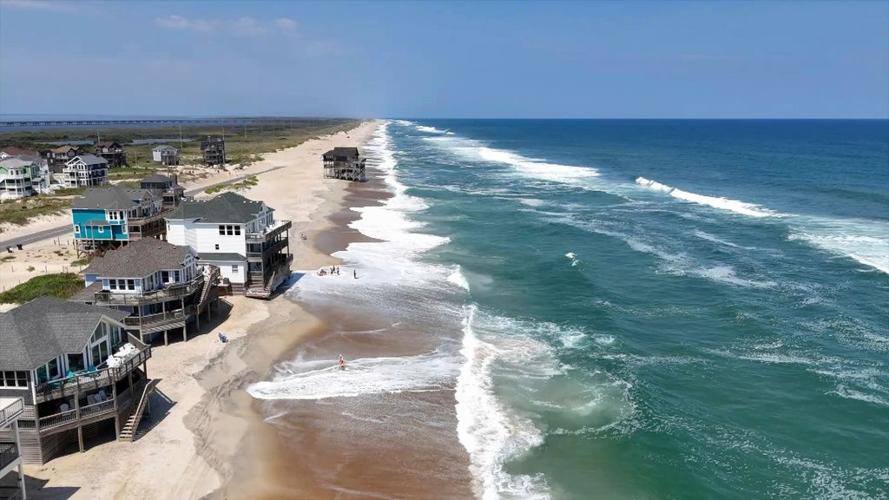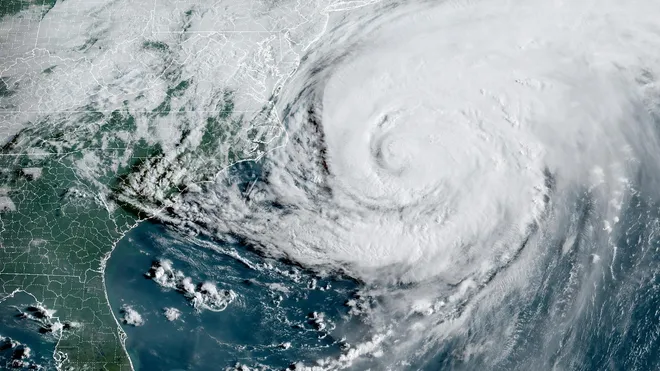Chicago, long considered a major sanctuary city for immigrants, is bracing for a new wave of federal immigration enforcement beginning next week. According to officials, the Biden administration is preparing to intensify its operations in the city, targeting undocumented immigrants with outstanding deportation orders, criminal records, or recent unlawful entries into the United States.
- Why Chicago? The City’s Role in National Immigration Policy
- What the Federal Government Is Planning
- The Political Context
- Chicago Officials Push Back
- The Human Impact: Fear and Uncertainty
- Economic and Social Ripple Effects
- Legal Challenges Ahead
- National Reactions
- The Bigger Picture: Immigration Reform Stalemate
- FAQs
- Why is the federal government increasing immigration enforcement in Chicago?
- What does it mean that Chicago is a “sanctuary city”?
- Will all undocumented immigrants be at risk of deportation?
- How are local leaders responding?
- What can immigrants in Chicago do to protect themselves?
- Could this enforcement campaign impact the city’s economy?
- Is this part of a national immigration crackdown?
- Conclusion
This announcement has sent shockwaves across Chicago’s immigrant communities. Advocates fear a surge of fear, family separations, and strained community-police relations, while federal authorities argue the measures are necessary to uphold immigration law and address concerns about border security.
The decision comes amid heightened political tensions across the country, with immigration reform, border security, and sanctuary city policies once again dominating national debates ahead of the 2026 midterm elections.
This article explores the situation from multiple perspectives—why the federal government is stepping up enforcement, how local leaders are responding, what the legal framework looks like, and what immigrants and Chicago residents should expect in the days ahead.
Why Chicago? The City’s Role in National Immigration Policy
Chicago has long been a hub for immigrants from Latin America, Eastern Europe, Asia, and Africa. According to census data, nearly 1 in 5 Chicago residents is foreign-born, and about 400,000 undocumented immigrants are estimated to live in the greater metropolitan area.
For years, Chicago has maintained its identity as a “sanctuary city”—a term used to describe jurisdictions that limit cooperation with federal immigration authorities. Under these policies, local police do not typically detain individuals solely for immigration violations, nor do they share detailed information with Immigration and Customs Enforcement (ICE) unless criminal activity is involved.
This approach, city leaders argue, fosters trust between immigrant communities and local law enforcement. However, critics—especially at the federal level—say it allows individuals with deportation orders to evade capture.
By choosing Chicago for a concentrated enforcement push, federal authorities are sending a clear message: sanctuary policies will not prevent the federal government from carrying out immigration law.
What the Federal Government Is Planning
Though specific operational details remain classified, immigration officials confirmed that targeted raids and arrests will begin next week across multiple Chicago neighborhoods. The focus, they say, will be on:
Individuals with final deportation orders who have remained in the U.S. despite legal rulings.
People with serious criminal records or those considered public safety risks.
Recent border crossers who entered unlawfully and failed to appear for immigration hearings.
Officials also suggested that the Department of Homeland Security (DHS) will coordinate with ICE field officers in Chicago to carry out these operations. Mobile units and detention facilities are being prepared to handle the expected rise in arrests.
While DHS insists this is not a “mass deportation” campaign, immigrant rights organizations remain skeptical. Past enforcement actions have often swept up individuals who were not on target lists, creating a climate of fear across entire communities.
The Political Context
Immigration enforcement in Chicago cannot be understood without the broader political backdrop. The Biden administration has faced criticism from both ends of the political spectrum.
From conservatives: Critics argue the administration’s border policies are too lenient, leading to record numbers of illegal crossings. Calls for stricter enforcement have grown louder, especially in swing states.
From progressives: Activists accuse Biden of continuing Trump-era enforcement practices that tear families apart. They argue the government should prioritize pathways to legalization, not deportation crackdowns.
The decision to intensify enforcement in Chicago may reflect an effort to balance these competing pressures. By targeting individuals with criminal records, the administration can claim to uphold the law while avoiding accusations of indiscriminate deportations.
Still, this nuanced approach may not satisfy either side. Republicans may see it as too little, too late, while immigrant advocates view it as a betrayal of campaign promises.
Chicago Officials Push Back
Local leaders in Chicago have already voiced opposition to the planned crackdown. Mayor Brandon Johnson reaffirmed the city’s sanctuary status, declaring:
“Chicago will always stand by our immigrant communities. We will not cooperate with federal raids that undermine the safety and trust we’ve built in our neighborhoods.”
Several members of the Chicago City Council echoed this stance, urging residents to know their rights and avoid unnecessary interactions with immigration officers.
At the state level, Illinois Governor J.B. Pritzker criticized the move as a “politically motivated escalation”, warning that it could destabilize communities and overburden social services.
The Human Impact: Fear and Uncertainty
For immigrant families in Chicago, the announcement has sparked fear and confusion. Many are unsure whether they will be directly targeted or if federal raids will indiscriminately sweep through communities.
Advocacy groups like the Illinois Coalition for Immigrant and Refugee Rights (ICIRR) have begun distributing “Know Your Rights” flyers in multiple languages. These materials remind immigrants that they do not have to open their doors to ICE without a judicial warrant and that they are entitled to remain silent during questioning.
Stories from past enforcement campaigns suggest how disruptive such actions can be. In 2019, for example, Chicago saw similar raids that led to the detention of over 140 individuals in a matter of days. Many were parents, leaving children behind with no warning. Community organizations scrambled to provide legal aid, housing, and emotional support for affected families.
The looming crackdown threatens to repeat this cycle, with hundreds—possibly thousands—of families at risk of separation.
Economic and Social Ripple Effects
Immigration crackdowns are not only legal or humanitarian issues; they also have profound economic consequences. Chicago’s immigrant workforce contributes heavily to industries like construction, hospitality, food services, and health care.
According to research from the American Immigration Council, immigrants make up nearly 30% of Chicago’s workforce in food services.
Undocumented workers contribute billions annually in taxes, even without access to most federal benefits.
If widespread arrests occur, businesses could face labor shortages, and communities could experience declines in consumer spending as families retreat from public life.
Schools and churches—often safe havens for immigrant families—are also bracing for the emotional fallout. Educators warn that children of undocumented parents may experience heightened anxiety, absenteeism, and academic struggles during the enforcement period.
Legal Challenges Ahead
Legal experts predict a wave of lawsuits once the federal operations begin. Civil rights groups argue that raids often violate constitutional protections against unreasonable searches and seizures. Others claim that targeting individuals in sanctuary cities undermines local governance.
Chicago-based immigration attorneys are preparing to file emergency motions to halt deportations, especially for individuals who may qualify for asylum, Temporary Protected Status (TPS), or family-based petitions.
There is also the question of federal-local cooperation. While federal authorities do not need local approval to conduct raids, the refusal of city officials to assist could create logistical hurdles. For example, Chicago police will not honor ICE detainer requests unless accompanied by a criminal warrant. This legal tension could escalate if federal authorities demand more cooperation.
National Reactions
The Chicago enforcement plan has attracted attention from across the country.
Republican lawmakers applauded the move, calling it a necessary step to restore law and order. Some even urged the administration to expand such efforts to other sanctuary cities like New York, Los Angeles, and San Francisco.
Immigrant advocacy groups condemned the plan, organizing rallies and preparing legal defense networks. They argue that true immigration reform should focus on legalization and integration, not deportation raids.
Legal scholars warn that these enforcement actions may ultimately land in federal court, shaping the legal boundaries of sanctuary policies for years to come.
The Bigger Picture: Immigration Reform Stalemate
The enforcement surge in Chicago underscores the ongoing stalemate in U.S. immigration reform. For decades, lawmakers have promised comprehensive solutions, yet little progress has been made.
Efforts to pass bipartisan bills have repeatedly failed, leaving a patchwork of policies that vary from one administration to the next. While some presidents emphasize enforcement, others push for legalization—but neither approach has delivered a lasting framework.
Chicago’s situation is a microcosm of this national struggle. With millions of immigrants living in legal limbo, every enforcement campaign feels like a stopgap measure rather than a solution.
FAQs
Why is the federal government increasing immigration enforcement in Chicago?
Officials say the focus is on individuals with deportation orders, criminal records, or recent unlawful entries. Chicago was chosen in part because of its large immigrant population and sanctuary policies.
What does it mean that Chicago is a “sanctuary city”?
It means local authorities limit cooperation with federal immigration enforcement, particularly when it comes to holding people for ICE without a criminal warrant.
Will all undocumented immigrants be at risk of deportation?
Federal officials claim they are targeting specific groups, but advocacy organizations warn that past raids often swept up individuals who were not on official target lists.
How are local leaders responding?
Chicago officials, including the mayor and governor, strongly oppose the raids and are urging residents to know their rights. They emphasize that city police will not cooperate with ICE.
What can immigrants in Chicago do to protect themselves?
Legal experts recommend knowing your rights, avoiding unnecessary interactions with ICE, and contacting local advocacy groups for legal assistance.
Could this enforcement campaign impact the city’s economy?
Yes. Immigrants form a significant portion of Chicago’s workforce, particularly in food services, construction, and hospitality. Widespread deportations could lead to labor shortages and reduced consumer spending.
Is this part of a national immigration crackdown?
For now, the focus is on Chicago, but experts believe similar enforcement actions could expand to other sanctuary cities if federal authorities deem it effective.
Conclusion
The federal government’s decision to step up immigration enforcement in Chicago next week represents a pivotal moment for the city, its immigrant communities, and the national debate over immigration policy.
For some, it is a long-overdue measure to enforce the law and protect public safety. For others, it is a devastating reminder of how fragile life can be for undocumented families living in the United States.
Regardless of perspective, one fact is clear: this enforcement push will not just affect those targeted for deportation. It will reverberate through schools, workplaces, neighborhoods, and political arenas, shaping the future of immigration debates in America.
As Chicago prepares for next week, the nation watches closely—wondering whether this move represents a turning point in immigration enforcement or simply another chapter in a long, unresolved struggle.












